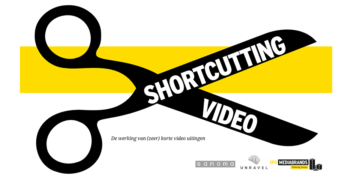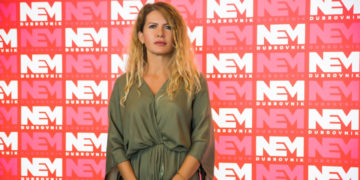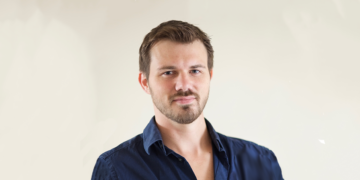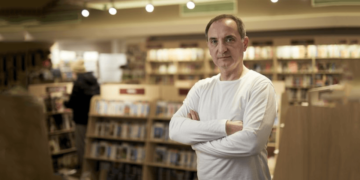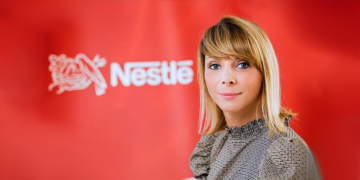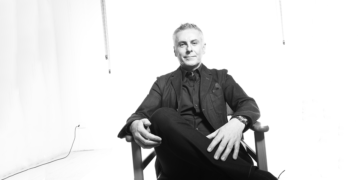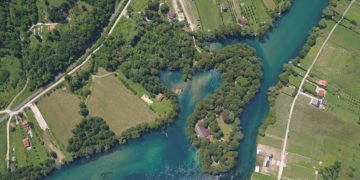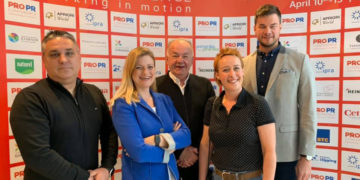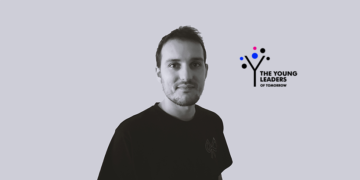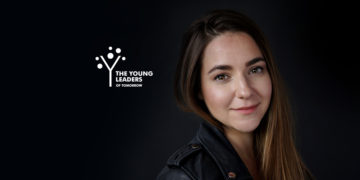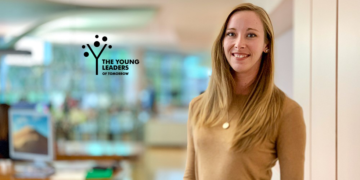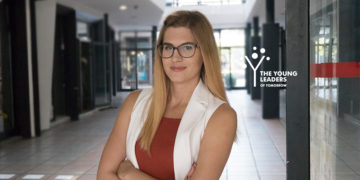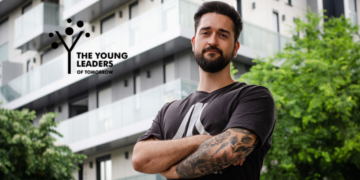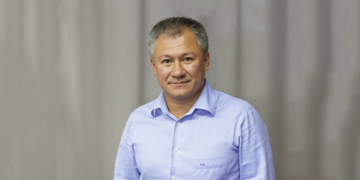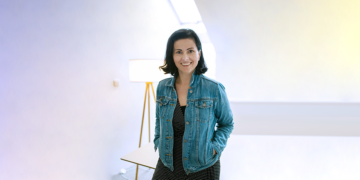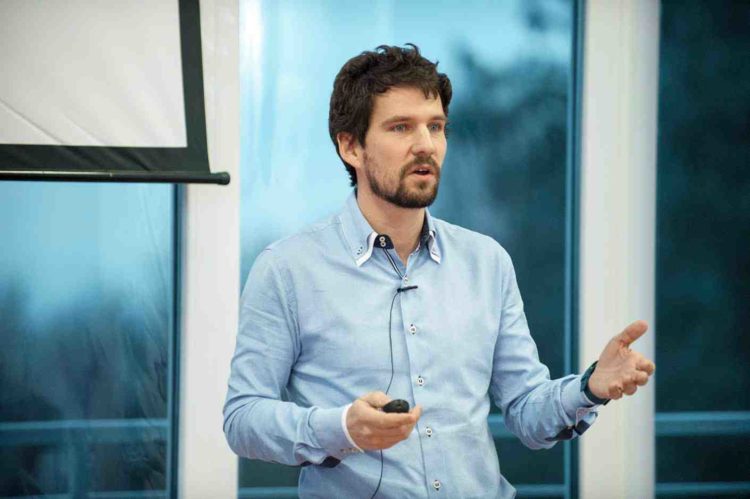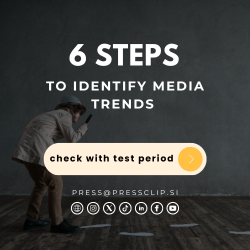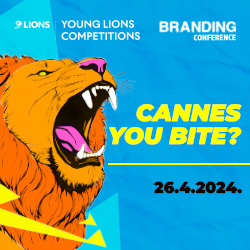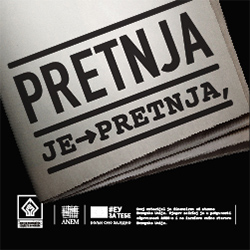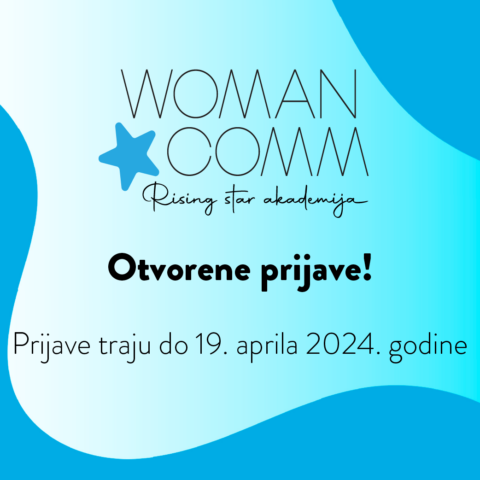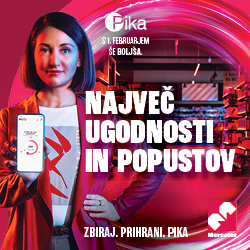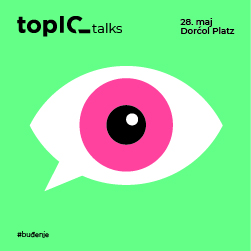Drugi jezik na kojem je dostupan ovaj članak: Bosnian
By: Ekrem Dupanović
Andraž Štalec is the director and co-founder of Red Orbit, one of the leading Slovenian digital agencies, founded in 2002. They started with optimizing websites, and about four years later, they included in their offer Google Advertising, Facebook Advertising, Google Analytics, LinkedIn, Twitter, etc.
Red Orbit today has 22 permanent employees and 10-15 external associates who are occasionally engaged on projects. Within the agency, there are departments for operational affairs, marketing, strategy as well as the department for processing and collection of data, which supports other departments.
The foundation for all employees’ work is data and Google Analytics, and all employees are well-versed in the secrets of these jobs. Half of the work of the Red Orbit today is made up of advertising and various digital channels, while the other half is data-driven consultancy.
In essence, what they deal with is the development of digital business of their clients.
E.D.: Speaking of data, how easy is to reach them today? How disciplined are Slovenians when it comes to GDPR?
Andraž Štalec: I would say they aren’t disciplined. GDPR did not change much in terms of data collection. Companies are a little more careful, but the bigger problem than getting customer data is the fact that companies don’t have their data properly sorted out.
There’s a total chaos among them. They have some Excel sheets, then some data from their sales, some marketing data… But they don’t have a central database and the biggest job is to organize all that exists at the outset. For the first year we usually do only that.
We have also worked with clients such as Mercator – with retailers who have a loyalty card system. It turned out that the biggest problem in Slovenia is that the internal legal service doesn’t allow the use of data like, say, what you bought. Four years ago, we had developed a program for a retailer whose loyalty card showed exactly what you bought. We saw that one buyer shops each week for diapers, bread, shampoo, etc. and we’ve started running ads for these products every week. It was great, everything worked fine until our legal service had banned this type of advertising. Abroad, this form of advertising is very widespread.
E.D.: One of the best revenue streams of Mastercard over the last two-three years – as far as I’ve heard – is actually sale of data.
Andraž Štalec: Yes. Google is now buying data from Mastercard to find out what you bought and when. We also do some work in the UK. The situation there is even worse than in Slovenia. You can’t do anything. They are very strict in terms of what you can and cannot do.
E.D.: But what does my personal permission mean when you start doing something and then I, as a user, later revoke my permission for use of my data?
Andraž Štalec: Users generally don’t revoke their permissions for use of their data, so that is not an issue. The issues are mainly caused by internal legal departments. The hardest thing to do is convince them that what you are doing is OK for the users, the company and the client.
E.D.: Why does Robert Petković claim that Red Orbit is the best digital agency in Slovenia?
Andraž Štalec: The two of us have known each other for six years now. We held lectures together, participated in conferences and worked on various projects. Both he and I are devotees of Google Analytics. We are data led. And we also did interesting campaigns for markets abroad together.
Robert knows us well, and he also knows the overall digital scene in Slovenia, so if he says so, who am I to complain.
We had no idea how good we are until we applied for Google Partners, and they said that what we were doing is a masterpiece
E.D.: What is it that places Red Orbit to the very top of Slovenian digital agencies? Is there something specific that makes you special?
Andraž Štalec: The two of us who founded the agency are both from IT background. We have always approached marketing from a tech point of view, focusing on data, analytics, customer behavior, tracking and processing of all that. So, what is hit news for some, is something totally natural to us. We’ve been doing it for ten years now.
Marketing and the story are very important, but you also have to know the tech very well. That’s what we do different from the others. The biggest difference is that we are the only Google Analytics partner in Slovenia. And there are not many such partners in Europe.
E.D.: What does it mean to be a Google Analytics partner?
Andraž Štalec: You have to go through a very complex approval process at Google’s headquarters and present three extremely advanced analytics implementations. For example, for our Big Bang client who sells televisions, fridges, and so on, we checked the IP address of every user visiting their website six years ago. If the IP address was from Zagreb, we looked at what kind of weather was in Zagreb at that time.
For example, it was cloudy and 7 degrees Celsius. We put this into the database and looked at the transaction analysis. We collected these data and analysed how weather conditions affect transactions. So we knew that if it’s 20 degrees and sunny in Zagreb, it increases sales from that and that category. Thanks to weather forecasts and previously collected data, then you can forecast sales and advertise differently.
That’s what we did six years ago and won big awards for that. Literally, based on weather data, you have the algorithms that help you plan sales and optimize your advertising. You need to report three such projects to Google Analytics, and then they decide whether to give you permission to become their partner.
E.D.: How many things can affect a person’s consumption? Weather is one thing, but what else? What are the most common influencers on consumer behaviour?
Andraž Štalec: We analysed weather conditions for Adria Airways. We looked at the time when each user last visited their website, and how often they visited over the past few days. This shows you how conversions grow on your webpage.
We’ve found that if a user visits a website more than six times over two days, the conversion jumps to 40%, which is great. If they only visit the site twice in those two days, the probability of buying a plane ticket is minimal.
Based on this you can decide who you are going to target with your ads. Those who visited the site only twice in the last two days aren’t worth the expense. You need a thoroughly detailed targeting. Conversion in the end grows to 100%, because we sift out all those that are irrelevant. And at that, the budget can be cut to 50%!
The situation differs from case to case. We also have retailers like Mercator, Tuš or Spar. In each of them, you have three different shopper carts. One is the daily cart, with milk, bread etc. The second is a weekly cart, with toilet paper for example. The third is the monthly cart. In this one you have laundry detergents and so on. And there are also snacks. Some shoppers come to the store to by a snack, a sandwich or similar.
About 600,000 of them have a loyalty card, and we analyse all transactions, get clusters, and we know exactly who buys what for every day in the week. We know exactly which brand of shampoo they buy. And we send them a promo message for his exact shampoo brand to his smartphone. That’s something we’re currently testing. The sky is the limit here.
E.D.: What about programmatic TV? At first people were saying “that’s not it”, but now it is trending again.
Andraž Štalec: The whole story about programmatic TV is blown out of proportion a bit. I made my first website in 1995. At that time, we placed the ad banners for advertisers manually. Google adverts, Facebook adverts, have been programmatic since the day one, and all are done by a machine that links users with ads.
Around 2014 or 2015, old networks figured out that Google and Facebook are fundamentally programmatic, though none of them claimed to be such. They realized that they lost a lot of their budgets to these players, and suddenly thought that this type of advertising offers something more. My theory is that it doesn’t offer anything more.
E.D.: OK. What is then the trending topic in digital right now?
Andraž Štalec: The artificial intelligence bullshit! There is absolute hype that this is something wow. Everyone wants to use it, and nobody knows how, and they thing it’s some sort of a plug-in – a tool that you buy. It’s not!
First, you need a custom customer database, then you have to deal with automation step by step. There was a great hype for AI until about a year ago. By now, everyone has sobered up a bit.
What I think should be the next big thing is the friction – the concept I’ve been researching over the last eight months – removing friction from the user’s life. The winner will be the one who will offer the user exactly what they want in the most frictionless and streamlined way possible. Meaning, they will find the obstacles on customer’s purchase journey, and will have insights after they buy something.
Thinking about how to remove these obstacles is something I believe the brands should do much more. That’s what sets you apart from the others.
The third thing that concerns all kinds of online purchases is loyalty. The number of online users in Western Europe and the US has stopped growing. At the same time, entry barriers for online are minimal. In a single day I can start competing with the largest web stores, with the likes of Mercator, Big Bang, IKEA… One day is all I need.
A couple of years ago user had a choice between three retailers, and in Slovenia we had one or two million users – irrelevant. Today, there are 50 retailers in Slovenia and 50 abroad, and we still have the same two million users. Since they started advertising on Google, Facebook, etc., the CPC (cost-per-click) is growing. You have to pay more per user, and there are no new users. The math of the yester years simply no longer applies.
Mitja Tuškej of the AM Communications Ljubljana was also present at my interview with Andraž, so he jumped in with his two cents: “However, because competition is growing so hectically in all areas, and everyone is looking for the right contact with the consumer, it is key to achieve customer engagement through digital. You have to get them to start communicating with you, and engaging in your story. If they do, they will find their own lifestyle, their own state of consciousness. If that happens, they will be yours. Today, it’s not the click that counts, but you engaging me in your story. The level of engagement and cocreation of the brand story are the things that work. Listen what ‘your’ user will tell you, listen how they say it, and try to adjust to that. Digital opens all the doors in this sense.”
Andraž Štalec: The problem is that all traders think the same way – “I will invest €10, 20, 50,000 in creating new users. What kind of nonsense is that? Everyone is online, and every one of them has already bought from you in the past. Invest 50,000 to attract attention of the users. You need to deal with how to sell something else to them again. And again, and again, and again!
E.D.: The theory of sales tells us that you need to sell to those who already bought from you. They already opted for you, they trust you, your prices and quality suit them. Now you just need to sell them more.
Andraž Štalec: Exactly. The business model in the online world has to change. Everyone has already visited you. Your business model has to turn to loyalty and retention. You have to start measuring your success not by the number of individual transactions but by the lifetime value for the user.
You are interested in how much time and money a customer spends with you. When you start thinking in that direction, the key indicators of your success change, as well as your business strategy. Instead of hunting new customers, you need to focus on engaging the existing ones to buy from you again. This also changes your advertising strategy. The difference becomes like night and day.
Half of our clients are from Slovenia, half from abroad. We work with clients from the Netherlands, UK, Denmark …
E.D.: Let’s go back to artificial intelligence. Where are its limits? There are predictions that creative directors and copywriters in agencies will at one point become robots. Is it possible that they could replace people, specifically in jobs like those?
Andraž Štalec: Both yes and no. I read a survey that showed how many people lost their jobs because they were replaced by machines. None! Your job will perhaps change because of introduction of artificial intelligence, but you will not be left without the job.
The entire Google rests on artificial intelligence. Will artificial intelligence replace creatives in their jobs in three years? I don’t think it will, but it is certain that the job will change.
Two years ago we introduced a new brand to the market. The Creative Director devised the creative idea, but it had different versions. We’ve tested 20 of them online in the market to find out which of them will be the most successful and then we developed that one further.
Creative job will change a bit. But there will still be a human dealing with creative, but it will ultimately be supplemented with artificial intelligence that will help test and direct everything in the right direction.
I believe that AI will first and foremost take over these micro tasks, such as reporting, data gathering, data processing, data clearing, basic text and graphics writing. Automation tools for marketing, for example.
There is no chance that a person will be able to write enough different scenarios to target each consumer. But artificial intelligence can. One of the areas where artificial intelligence has made the most progress, in addition to the automation of marketing tools, is customer relationships. If you have 600,000 users in your data base, the computer will handle them much better.
E.D.: Who are your biggest clients? For whom do you do most work, and what?
Andraž Štalec: As far as the sectors are concerned, we mostly work for retail and electronics, travel agencies, insurance, banking, small exporters. Half of our clients are from Slovenia, half from abroad. We work with clients from the Netherlands, UK, Denmark … We are still doing everything from Ljubljana. We are slowly preparing to open our office in the UK. I spend at least one week a month there because of the large number of clients we have in this market.
E.D.: How did you manage to succeed in the UK? Is it that you are cheaper than their agencies, and have the same smarts, or…?
Andraž Štalec: We had no idea how good we are until we applied for Google Partners, and they said that what we were doing is a masterpiece. Then we heard the same thing from other foreign partners, agencies and lecturers from abroad.
On the UK market, we, as well as some other agencies from our region, have much more knowledge and are doing more advanced things than agencies there. Why? Because here in our region, in order to justify a serious sum that a client pays you, you have to improve their business results by 20%. In the UK, they do the same for only 2% and they covered their work, because the market is that much bigger. Most foreign clients engage us because we are doing more advanced things than their agencies. Pricing is a little cheaper, but not much.
E.D.: Where can you make a better earning on a same project, in the UK or in Slovenia?
Andraž Štalec: In the UK. But there are also great clients in Slovenia, not so much in the way of profits, but a large number of them in the region have recently realized that digital can bring a lot of new jobs and are more prepared to think differently.
They slowly started to invest in the development of their digital business. We have clients who invest serious money with the intent to internationalize their business through digital. Even if it’s about pure B2B offline business, user acquisitions, raising awareness or entering the market, all of it happens through digital.
E.D.: How is the situation with staff for digital?
Andraž Štalec: There’s a shortage. It’s an issue both here, and in UK, and even in the US. There are too few talents.
The artificial intelligence bullshit is hit right now in digital! There is absolute hype that this is something “wow”. Everyone wants to use it, and nobody knows how, and they thing it’s some sort of a plug-in – a tool that you buy. It’s not!
E.D.: Or is it that there are talents in Slovenia, but they are better paid abroad. And if they do it from home for international fees and salaries, they earn money that they will never see from jobs in Slovenia?
Andraž Štalec: Yes, exactly. If you are a freelancer from Slovenia, you have the competitive advantage everywhere. Another problem is that no university is truly teaching digital. Even if you are studying marketing, you will have one or two subjects dealing with digital, but this will not properly train you.
There are many young people, but you need 3-4 years to train them. We have long realized that we must invest in market development and education. When we started to optimize websites in 2002, nobody in Slovenia knew what that meant. Whoever we hired, we had to train them because they had no idea what we were doing.
The internal process of hiring someone is very well developed in our agency. Whoever enters the firm passes through about 30 different training courses from the ground up. In the next half of the year, they hop from job to job within the agency so we could see if they understood everything. Only then they go to their workplace. We invest heavily in introducing new employees into business and their education.
E.D.: How will your ability to expand business rapidly reconcile with this shortage of staff? Will you be forced to import talents from abroad?
Andraž Štalec: That’s one of the options – looking at other countries. If you’re going to bring someone in, you look for temporary external associates or freelancers. But it is best to internally train someone who shares your values, is dedicated and truly wants to deal with digital. Then you enable the person to grow and develop, progressing within the company.
That’s the best way. Otherwise, you cannot get quality staff fast and good enough, because there are none. It’s a challenge.
E.D.: Lets end the conversation with the InOrbit conference which you extended this year by one day, so it will be held from 13 to 15 March at the Congress Center Bernardin, Portorož (Slovenia). What prompted you to launch a conference? Like you don’t have enough work already.
Andraž Štalec: We organize InOrbit Conference because we want to bring knowledge to the region. We started this project five years ago, and today, if not the biggest, it is one of the biggest conferences in the region exclusively dedicated to digital.
We invite various, great speakers, whom we met as participants in festivals and conferences across the globe. We expect 800 people at InOrbit this year. It will last three days and will have over 50 foreign speakers. There will be workshops on Wednesday, and on Thursday and Friday lectures.
About 50% of the participants come from Slovenia, 20% from Croatia and then some from Serbia and Bosnia and Herzegovina. 10% come from the UK and 7% from US. This is a good sign that we are doing a good job and we offer good content, but the best feedback is the added value that the participants are talking about.
What is important to me personally, but also to the agency, is that if you want to develop the market, then clients have to understand what it’s all about, and clients have to come to such conferences. If they don’t understand what digital is, how the world is changing, no agency will be able to help them. Our agency is fully focused on the client and how to educate them to understand strategically important things in digital.

E.D.: I would propose that you do an entire day dedicated solely to clients.
Andraž Štalec: Last year InOrbit Conference was attended by around 700 delegates, 60% of whom – if not more – were clients. Program in the big hall was dedicated solely to them.
Different specialists focused on topics that are of strategic importance for them as clients. That’s the key topic – how to make your business grow.
E.D.: Who will be the lecturers?
Andraž Štalec: Internationally acclaimed speakers include prominent names in digital marketing and companies such as Ikea, Booking, Google, TopRank Marketing, Facebook, Intercom, Deepcrawl and many others.
The conference will be divided into three distinct segments.
The Strategy segment will focus on new market conditions, trends, and tools that are becoming the leading tools in online tech. Participants will work on building the foundation in setting up the company’s strategic policies. Topics will focus on content marketing, user experience, mobile and influencer marketing and voice search, and participants will also have the opportunity to find out what’s needed to organize a digital team in their own companies.
The Deep Dive segment will provide expert insights into major digital channels and tactics with advanced sessions that will provide insights that can be used in practice, marketing strategies, and tips and tricks for conversions that will be shared by successful digital entrepreneurs and marketers.
This segment will be of more technical nature, and is suitable for those who already have some previous experience. Focus will be on advertising on Facebook and Google, website optimization, local SEO, web page speed, Instagram automation, live video, digital analysis, conversion rate optimization, and content marketing.
A novelty at this year’s conference will be the e-Commerce segment for those dealing with online commerce. With sessions covering topics such as category management, chatbots, Amazon advertising, loyalty, segmentation and audience building, Google Shopping Ads, etc., participants will acquire the knowledge and insights needed to raise their business to a higher level.
More information and program are available at www.inorbit.si.



